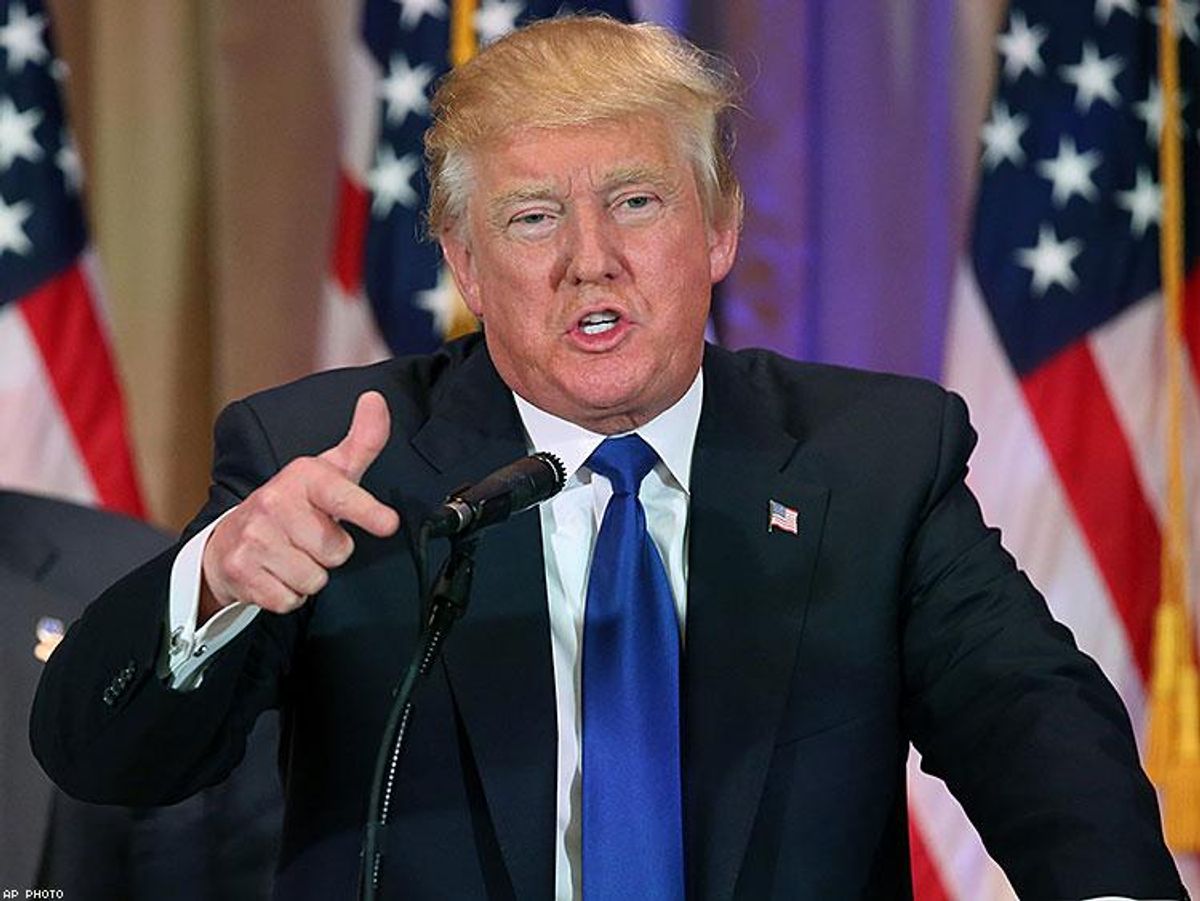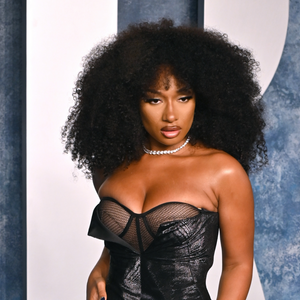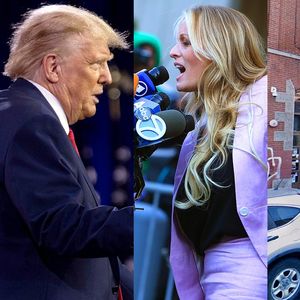Business mogul Donald Trump is emerging as the big winner of Super Tuesday for Republicans, with the party supporters voting in primaries or caucuses in 11 states.
As of about 11 p.m. Eastern, NBC News, The New York Times, and other sources had called Arkansas, Georgia, Massachusetts, Tennessee, Virginia, and Alabama for Trump. A few hours later, he was declared the winner in Vermont, a close contest with Ohio Gov. John Kasich.
U.S. Sen. Ted Cruz won in his home state of Texas and neighboring Oklahoma, and hours after they were decided, he won the caucus in Alaska. And U.S. Sen. Marco Rubio of Florida was the winner of Minnesota's caucus, his first victory of the primary season.
In most states Cruz and Rubio finished second or third, while Kasich and retired neurosurgeon Ben Carson brought up the rear in a field that except for Kasich is uniformly anti-LGBT rights, with candidates pledging to appoint Supreme Court justices who would overturn last year's marriage equality ruling and voicing support for the so-called First Amendment Defense Act, which would permit anti-LGBT discrimination in the name of religion.
Trump, speaking in Palm Beach, Fla., after several states had been called for him, asserted that he would unify the party and be the best candidate to face Democrat Hillary Clinton, although he also claimed that Clinton may not be allowed to run for president because of the FBI probe into her use of a private email server while she was secretary of State. He said she committed a "criminal act."
With some Republican politicians saying they won't support Trump if he's the party's nominee, a reporter asked him about the possibility that someone would mount a third-party challenge to him. "That would be the work of a loser," Trump responded.
Asked about House Speaker Paul Ryan's statement that Republicans should not appeal to racism, a thinly veiled criticism of Trump, the candidate replied, "I'm sure I'll get along great with him, and if I don't, he's going to have to pay a big price."
Trump also touched on his usual points: that he'll build a wall on the U.S.-Mexico border to keep undocumented immigrants out, that he'll make great "deals" that will bring jobs back to the U.S., and that he'll repeal the Affordable Care Act, a.k.a. Obamacare, and replace it with something better. He also gave a bit of praise to Planned Parenthood, saying it does great work for women, except for abortion, and that no federal funds should go to abortion services -- something already prohibited by federal law.
Cruz, speaking to supporters in Stafford, Tex., also promised to end Obamacare and "secure the border," while also touting himself as the candidate who will "defend religious liberty, the Second Amendment, and the Bill of Rights."
He thanked several Texas politicians for their support, all of them with strongly anti-LGBT records -- Gov. Greg Abbott, Lt. Gov. Dan Patrick (who chairs Cruz's campaign in Texas), and former Gov. Rick Perry, who once sought the presidential nomination himself.
Without mentioning Rubio's name, Cruz strongly hinted that the Florida senator should get out of the race, as Cruz promoted himself as the candidate with the best shot at beating Trump. "Candidates who have not yet won a state, who have not racked up significant delegates, I ask you to prayerfully consider our coming together, uniting," he said, before Rubio's win in Minnesota had been announced.
"So long as the field remains divided, Donald Trump's path to the nomination remains more likely," he added. "And that will be a disaster for Republicans."
Rubio, however, showed no willingness tonight to leave the race. In an interview with CBS's Charlie Rose, also before the Minnesota results were in, he said that in Virginia, "we basically fought Trump to a draw," and that with delegates from most Super Tuesday states being awarded proportionally, he'll stay competitive in the delegate count.
"I'll do anything it takes to keep Donald Trump from being our nominee," Rubio told Rose, and he further called Trump a "con artist." "He is conning people into believing he fights for the little guy," Rubio said. He noted that despite Trump's rhetoric, some of his properties had employed undocumented immigrants, and that his Trump University had been accused of fraud.
There were 595 Republican delegates up for grabs in the Super Tuesday states. That means Trump, who had won 82 delegates going into the day, won't get the 1,237 needed to secure the nomination, but he has solidified his status as front-runner, after earlier wins in Nevada, New Hampshire, and South Carolina. Cruz won the Iowa caucus.
As of early Wednesday morning, Trump had upped his delegate total to 285, the Associated Press reports, with Cruz at 161, Rubio at 87, Kasich at 25, and Carson at eight. Some of the states holding primaries today award delegates on a winner-take-all basis only if a candidate won more than 50 percent of the vote, but that wasn't happening anywhere. Otherwise delegates are awarded proportionally, to an extent -- in some states candidates don't get any delegates if they have less than 20 percent of the vote, and in some delegates are apportioned by congressional district. The results as of early Wednesday, according to the AP:
In Alabama, with a total of 50 Republican delegates, with 100 percent of the vote counted, Trump had 43.4 percent support and had claimed 20 delegates. Cruz was second with 21 percent and two delegates, Rubio third with 18 percent. The rest of the delegates hadn't been apportioned.
In Georgia, with 99 percent of the vote counted, Trump had 38.8 percent of the vote, with Rubio at 24.5 percent and Cruz at 23.6 percent. So far 36 of the state's 76 delegates had been awarded to Trump, 11 to Rubio, and 14 to Cruz.
In Massachusetts, with 97 percent of precincts reporting, Trump had 49 percent of the vote and 22 of the state's 42 delegates. Kasich and Rubio each had about 18 percent of the vote and eight delegates. Cruz had 9.6 percent and four delegates.
In Tennessee, with 99 percent reporting, Trump had 38.9 percent of the vote and 30 of the 58 delegates. Cruz was second with 24.7 percent and 12 delegates, Rubio third with 21.2 percent and two delegates.
In Virginia, with 99 percent reporting, Trump had 34.7 percent of the vote and 17 of the 49 delegates. Here each candidate picked up some delegates. Rubio had 31.9 percent and 16 delegates; Crua 16.9 percent and eight delegates; Kasich 9.4 percent and three delegates; and Carson 5.9 percent and two delegates.
In Arkansas, with 96 percent reporting, Trump had 32.7 percent of the vote and 13 of the state's 40 delegates. Cruz was second with 30.5 percent and nine delegates, Rubio third with 25 percent and six delegates.
Vermont, with 97 percent reporting, saw Trump with 32.7 percent and Kasich with 30.4 percent; each had been awarded six of the state's 16 delegates, with the remainder of the delegates to be allocated. Rubio was third with 19.3 percent of the vote.
In Texas, the big prize with 155 delegates, Cruz had 43.7 percent of the vote and 57 delegates, with 99 percent of precincts reporting. Trump had 26.8 percent and 20 delegates. Rubio was third with 17.8 percent, and the rest of the delegates hadn't been apportioned.
In Oklahoma, with 100 percent reporting, Cruz had 34.4 percent of the vote and 14 of the 43 delegates; Trump 28.3 percent and 12 delegates; and Rubio 26 percent and 11 delegates, with the remainder to be awarded.
Alaska's caucus saw another victory for Cruz. With 100 of votes counted, he had 36.4 percent and 12 of the 28 delegates. Trump had 33.5 percent and 11 delegates, and Rubio 15.1 percent and five delegates.
And in Minnesota, with 92 percent reporting, Rubio had been declared with winner with 36.8 percent of the vote and been awarded 12 delegates. Cruz had 28.9 percent of the vote and also 12 delegates, Trump 21.2 percent and five.
The Advocate will update this report as more numbers come in.



















































































